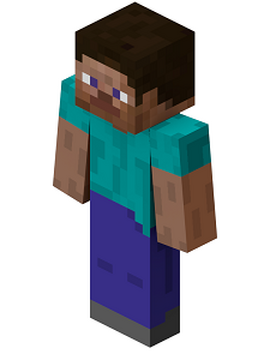games and ther price
Game boy
nintendo ds
nintendo 3d's
Nintendo Switch
GameCube

game boy Advencd was one of the most seling consols of all time!

fortnite is one of the most popular free video games that you can download online!

Hary Poter games are one of the least played games after "soul nighty"

pokemon were more popular on game boy Advenced

HARRY POTTER: QUIDDITCH CHAMPIONS IS A NEW MULTIPLAYER GAME
pokemon ofical website
steam
epic games
Minecraft: A Digital Realm of Endless Creativity
Minecraft, developed by Mojang Studios, stands as a cultural phenomenon in the realm of video games. Launched in 2011, this sandbox game has become a global sensation, captivating millions of players across diverse age groups. At its core, Minecraft is a virtual playground where creativity knows no bounds, allowing players to shape their own digital worlds one block at a time.
The game's fundamental concept revolves around breaking and placing blocks in a three-dimensional, procedurally generated world. From humble beginnings, where players must gather resources to survive the pixelated landscapes, to constructing elaborate structures limited only by imagination, Minecraft is a canvas waiting to be painted upon. The simplicity of its mechanics coupled with the infinite possibilities it offers has contributed to its enduring popularity.
Minecraft's charm lies in its open-ended nature. Players can choose to delve into the survival mode, where the challenge lies in fending off hostile creatures while gathering resources to sustain themselves. Alternatively, the creative mode empowers players with unlimited resources, allowing them to build architectural marvels without the constraints of survival. This duality ensures that Minecraft caters to a broad audience, from avid adventurers to aspiring architects.
The game's signature pixelated aesthetic has become iconic, reminiscent of a digital Lego world. Its deliberately retro look conceals a sophisticated engine that procedurally generates landscapes, ensuring that no two Minecraft worlds are alike. The diversity of biomes, from lush forests to arid deserts, adds an extra layer of exploration and discovery to the game.
Minecraft's multiplayer aspect amplifies its appeal. Players can collaborate on massive projects, engage in friendly competitions, or explore each other's creations in a shared universe. The game's online communities have flourished, with dedicated servers hosting unique game modes and modifications that enhance the Minecraft experience.
Furthermore, Minecraft has evolved beyond the confines of the gaming world. It has found applications in education, where its immersive environment serves as a platform for learning everything from mathematics to history. Its adaptability and accessibility have made it a valuable tool for educators seeking innovative ways to engage students.
In conclusion, Minecraft is not merely a game; it is a digital realm of endless creativity. Its simple yet powerful mechanics, coupled with a thriving community and an ever-expanding universe, make it a timeless masterpiece in the world of gaming. As players continue to shape their worlds, Minecraft remains a testament to the boundless potential of human imagination in the digital age.

Minecraft, the brainchild of Mojang Studios, has transcended the realm of video games to become a cultural phenomenon since its launch in 2011. At its core, Minecraft is a sandbox game that empowers players to shape their own virtual worlds using textured cubes in a procedurally generated 3D environment.
The game offers two primary modes: Survival and Creative. In Survival mode, players must gather resources, craft tools, and fend off hostile mobs to survive. It's a test of resilience and ingenuity as players navigate through diverse biomes, from dense forests to sprawling deserts, all while building shelters and exploring underground caverns.
Conversely, Creative mode grants players boundless freedom by providing unlimited resources and the ability to fly. Here, imagination reigns supreme as players construct elaborate structures, intricate redstone contraptions, and entire cities limited only by their creativity.
Steam: Revolutionizing the Gaming Industry
Steam, developed by Valve Corporation, stands as a pioneering force in the gaming industry since its launch in 2003. This digital distribution platform has transformed the way gamers access, purchase, and engage with video games, creating a vast ecosystem that connects players, developers, and communities worldwide.
At its core, Steam serves as a centralized hub where users can browse, purchase, and download a vast library of games across various genres and platforms. Its user-friendly interface and robust features make it a preferred choice for millions of gamers seeking convenience and accessibility in their gaming experiences.
One of Steam's defining features is its digital rights management (DRM) system, which provides developers with tools to protect their intellectual property while offering users the flexibility to access their games across multiple devices seamlessly. This DRM system, coupled with regular updates and patches, ensures a secure and optimized gaming experience for players.
Moreover, Steam's community features foster a sense of belonging and camaraderie among gamers. From forums and discussion boards to user-generated content and mods, Steam empowers players to connect, share experiences, and contribute to the gaming community in meaningful ways. This vibrant ecosystem not only enhances the longevity of games but also cultivates a sense of ownership and investment among players.
Additionally, Steam's integration of social features, such as friends lists, chat, and multiplayer matchmaking, further enriches the gaming experience by facilitating communication and collaboration among players. Whether teaming up with friends for cooperative gameplay or competing in online tournaments, Steam provides a platform for social interaction and camaraderie within the gaming community.
Furthermore, Steam's support for independent developers has democratized game development, allowing aspiring creators to publish and distribute their games to a global audience with ease. The platform's robust tools and resources, coupled with its vast user base, offer indie developers unprecedented opportunities for visibility and success.
In conclusion, Steam's impact on the gaming industry is undeniable. By revolutionizing digital distribution, fostering community engagement, and empowering developers, Steam has reshaped the way we discover, play, and connect through video games. As it continues to evolve and innovate, Steam remains at the forefront of gaming, driving the industry forward into a new era of digital entertainment.
 fortnite is one of the most popular free video games that you can download online!
fortnite is one of the most popular free video games that you can download online! Hary Poter games are one of the least played games after "soul nighty"
Hary Poter games are one of the least played games after "soul nighty" pokemon were more popular on game boy Advenced
pokemon were more popular on game boy Advenced HARRY POTTER: QUIDDITCH CHAMPIONS IS A NEW MULTIPLAYER GAME
HARRY POTTER: QUIDDITCH CHAMPIONS IS A NEW MULTIPLAYER GAME  Minecraft, the brainchild of Mojang Studios, has transcended the realm of video games to become a cultural phenomenon since its launch in 2011. At its core, Minecraft is a sandbox game that empowers players to shape their own virtual worlds using textured cubes in a procedurally generated 3D environment.
The game offers two primary modes: Survival and Creative. In Survival mode, players must gather resources, craft tools, and fend off hostile mobs to survive. It's a test of resilience and ingenuity as players navigate through diverse biomes, from dense forests to sprawling deserts, all while building shelters and exploring underground caverns.
Conversely, Creative mode grants players boundless freedom by providing unlimited resources and the ability to fly. Here, imagination reigns supreme as players construct elaborate structures, intricate redstone contraptions, and entire cities limited only by their creativity.
Minecraft, the brainchild of Mojang Studios, has transcended the realm of video games to become a cultural phenomenon since its launch in 2011. At its core, Minecraft is a sandbox game that empowers players to shape their own virtual worlds using textured cubes in a procedurally generated 3D environment.
The game offers two primary modes: Survival and Creative. In Survival mode, players must gather resources, craft tools, and fend off hostile mobs to survive. It's a test of resilience and ingenuity as players navigate through diverse biomes, from dense forests to sprawling deserts, all while building shelters and exploring underground caverns.
Conversely, Creative mode grants players boundless freedom by providing unlimited resources and the ability to fly. Here, imagination reigns supreme as players construct elaborate structures, intricate redstone contraptions, and entire cities limited only by their creativity.